Neuroscience research
Our Alfred Brain program offers a full range of specialised neuroscience services, bringing together the surgical and medical neuroscience units of neurosurgery, neurology, stroke, epilepsy, multiple sclerosis and neuroimmunology (MSNI) and the Monash Alfred Psychiatric research centre (MAPrc).
About our research
Our program has two dedicated wards with over 300 clinical and research staff and 20+ outpatient clinics that care for more than 25,000 patients a year. Professor Terry O’Brien is the Director of Alfred Brain and is also Deputy Director of Research.
Our clinics are run by some of Australia’s best specialist neurologists, neurosurgeons, psychiatrists, allied health staff and specialist nurses to provide multidisciplinary treatment and care to patients with multiple neurological diseases - our patients are the focus of what we do.
Main research areas
- Epilepsy
- Multiple sclerosis
- Neuroimmunology, including autoimmune encephalitis
- Functional neurosurgery - stereoelectroencephalography (SEEG)
- Neurotrauma
- Headache
- Parkinson’s disease and other movement disorders
- Dementias
- Neuromuscular disorders
- Neuro-ophthalmology and visual neuroscience
- Electrophysiology
- Stroke
- Vascular neurosurgery
- Brain injury rehabilitation and recovery
- Brain tumours
- Advanced neuroimaging, artificial intelligence, data science
- Depression
- Schizophrenia
- Complex PTSD
- Anxiety disorders
- Eating disorders
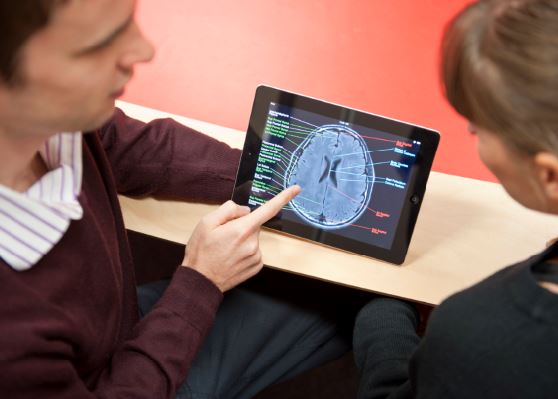
Clinical trials
The Alfred Neuroscience Clinical Trials Unit is the largest clinical trial site of its kind in Australia.
We are the only clinical trials unit with a dedicated inpatient early phase neuroscience clinical trials unit.
Find out more about neuroscience clinical trialsResearch platforms
We have multiple platforms to enable our translational neuroscience research:
- Six-bed video-electroencephalogram (vEEG) integrated monitoring unit with electrocardiography and polysomnography
- Human electrophysiology (electroencephalogram, electromyography, and intraoperative monitoring)
- Dedicated neuroscience clinical trials unit
- Purpose-built neuroscience laboratories with surgical suites, behavioural testing, bioengineering, in-vitro tissue culture and electrophysiology and stem cell research
- SIMOA HD-X ultrasensitive digital immunoassay instrument for the measurement of fluid biomarkers
- Pre-clinical in-vivo imaging facility (featuring MRI, PET, FLECT, and MPI)
- Human imaging (featuring 3T MRI, PET, CT, and angiography)
- Image analyses, data science, machine learning and artificial intelligence
- Genomics and bioinformatics platforms
- Advanced microscopy facilities
- Bio-databank facilities
Clinical registries and bio-databanks
We use coded, de-identified clinical data and biological samples from our clinical services for research to provide the best treatment, quality care and outcomes for patients, establishing bio-databanks and clinical registries.
Bio-databanks
Neuroscience Bio-databank and Brain Tumour Bio-databank. Each bio-databank prospectively collects and stores tissue samples from patients with a variety of neurological diseases:
- Brain tumours, epilepsy, multiple sclerosis, Alzheimer's disease, frontotemporal dementia, Parkinson’s disease, atypical Parkinsonism and other movement disorders, schizophrenia, migraine, and peripheral neuropathy.
- Variety of tissue types including brain, blood (DNA, plasma, PMBCs), cerebrospinal fluid, and peripheral nerve
- Tissues are stored in multiple ways, such as fresh frozen, paraffin fixed, processed (cultures, IPSPs)
- Linked to clinical, imaging (MRI, PET) and EEG databases to identify diagnostic and prognostic biomarkers, and biomarkers of treatment response
Clinical registries
- MSBase registry – led by Prof Helmut Butzkueven
- MS Pregnancy registry (MSBase) – led by Dr Vilija Jokubaitis
- Antipsychotics in Pregnancy National Database - led by Prof Jayashri Kulkarni
- Alfred Epilepsy registry – led by Profs Patrick Kwan and Terry O’Brien
- MGBase registry – led by A/Prof Anneke van der Walt and Dr WenWen Zhang
- NeuroCOVID-19 registry – led by Dr Robb Wesselingh and Dr Elspeth Hutton
- Australian Autoimmune Encephalitis Consortium registry – led by Dr Mastura Monif
- Neuro-ophthalmology Database (NODE) - led by A/Prof Anneke van der Walt
- Imaging Registry and XNAT Repository linked to above registries and high performance computing - led by Prof Meng Law
Our focus
Our focus is on translational neuroscience research outcomes. We apply a ‘whole pipeline’ approach, including:
- Identifying gaps in current clinical care for patients
- Engineering and developing cutting-edge treatments and interventions for some of the most difficult to treat neurological diseases
- Conducting clinical trials
- Making health evaluations
- Assessing cost effectiveness of treatments
- Generating knowledge through basic research to ensure the best possible patient outcomes
Our research is done in strong partnership with the largest academic department within the Monash University Central Clinical School, Department of Neuroscience, which commenced formally in 2018, and is a member of the Alfred Research Alliance.
Collaborations
Precinct collaborations
Alfred Brain has several multidisciplinary collaborations within the Alfred precinct, including:
- Neuroradiologists interested in advanced imaging analysis including artificial intelligence approaches to improve diagnosis and monitoring of brain diseases
- Haematologists interested in treatments for stroke and multiple sclerosis bone marrow transplantation
- Neuropsychologists studying the many interfaces between brain and mind including functional neurological disorders
- Rehabilitation specialists interested in optimising post-stroke recovery
- Cardiologists interested in connections between heart and brain disorders at the Baker Institute
- Gastroenterologists interested in gut-brain relationships especially the effects of the microbiome on neuroimmunological diseases
- Psychiatrists interested in the neurobiology of mental illnesses at Monash Alfred Psychiatry research centre
- Psychiatrists with expertise in women’s mental health, working to improve treatment outcomes for women
- Psychiatrists with expertise in brain stimulation techniques for depression, OCD and other mental disorders
- Psychologists working with chatbots and apps for body image disturbance and psychological issues related to infertility
- Engineers from the Monash Institute of Medical Engineering working to develop new devices to better diagnose and treat brain diseases
- Nucleus Network who conduct first-in-human studies and facilitate testing of novel treatments developed in our neuroscience laboratories
- Oncologists and neuroradiologists interested in developing new diagnostic and imaging approaches for brain tumours
- Ophthalmologists interested in neurological disorders affecting vision
We also partner with the Monash University School of Public Health and Preventive Medicine to understand the frequency and risk factors of brain diseases, as well as the costs associated with providing health treatments.
National collaborations
We maintain extensive collaborations with clinical and basic neuroscience researchers at:
- Other Monash campuses
- University of Melbourne
- Other Victorian universities
- The University of Sydney Neuroimaging group
- National network of academic multiple sclerosis and autoimmune encephalitis (neuroimmunology) centres
- Multiple Melbourne health care providers
- The Florey Institute of Mental Health and Neuroscience
International collaborations
Our researchers have also developed strong international relationships with collaborators across the world, including undertaking joint projects, international registry studies, grant applications, and supervising medical, doctoral and postdoctoral students.
Two major collaborations include:
- EPIBIOS4RX: a multi-centre clinical observational trial monitoring traumatic brain injury patients with potential development of post-traumatic epilepsy from acute to chronic periods after injury.
- ENIGMA-Ataxia: A Global MRI Collaboration for Rare Cerebellar Diseases. ENIGMA-Ataxia was founded to harmonise and aggregate the analysis of existing MRI data in these diseases from around the world in order to pool our collective resources and overcome many of these limitations.
Consumer support organisations
Our clinicians and researchers also have strong partnerships with consumers and consumer support organisations, including:
- Epilepsy Action
- Epilepsy Australia
- MS Australia
- Migraine and Headache Australia
- Myasthenia Gravis Association
- The Stroke Foundation
- Dementia Australia
- Brain Injury Australia
- Traffic Accident Commission
- Neuroscience Trials Australia
- Brain Foundation
- Parkinson’s Victoria
- Women’s Health Victoria
- Mental Health Complaints Commission
We are also a member of the Monash Central Clinical School Consumer and Research Engagement (CARE) Program.
Our achievements
Eight advanced epilepsy surgery cases with stereo electro-encephalography (SEEG) were performed at The Alfred, led by Dr Andrew Neal and A/Prof Martin Hunn:
- SEEG is a highly specialised technique used to guide surgical resection in patients with uncontrolled epilepsy. It provides a uniquely powerful way to record brain network activity and novel insights into how the brain 'thinks'.
- To establish SEEG, a multi-disciplinary team of neurosurgeons, neurologists, neurophysiology scientists, neuropsychologists, nurses and neuroradiologists was formed.
- This has allowed The Alfred to be recognised as a Level 4 Epilepsy Centre according to the National Association of Epilepsy Centre’s criteria, and offers transformational treatment for patients with severe otherwise untreatable epilepsy from across Australia.
- Launched and supporting international safety and pregnancy outcomes registries in Multiple Sclerosi
- Launching a new international registry for Myasthenia Gravis (under the MSBase Foundation umbrella)
- Launching the Alfred / Monash Neuroimaging storage and research system, Alfred XNAT
- Hosting the Victorian and National Autoimmune Encephalitis Registries
- Coordinating trials of active and passive neurological self-monitoring in Multiple Sclerosis using smartphones
- Implementation of the first multi-site Neuro-ophthalmological disease database in Australia, NODE
- Launched Alfred Brain Neuroimmunology Clinic servicing those with neuroinflammatory brain conditions such as Autoimmune Encephalitis, NMOSD, CNS vasculitis and others
- Developed and launched Australia’s first Women’s Mental Health Hospital (at Cabrini Health)
- World-first gonadal hormone treatment trials for menopausal depression, PMDD, psychological trauma
- Transcranial stimulation for perinatal mental ill health trials
Our team
The Alfred Neuroscience research team are leaders in their fields, with decades of Australian and international experience.

Prof O'Brien is the Program Director Alfred Brain, Deputy Director of Research and Head of Neuroscience Clinical Trials Unit at The Alfred.

Prof Patrick Kwan is the Director of Epilepsy: Genomics, Personalised Medicine at Alfred Health.

Dr Elspeth Hutton is the Deputy Director of Neurology and Head of Headache, Neuromuscular and Pain at Alfred Health.
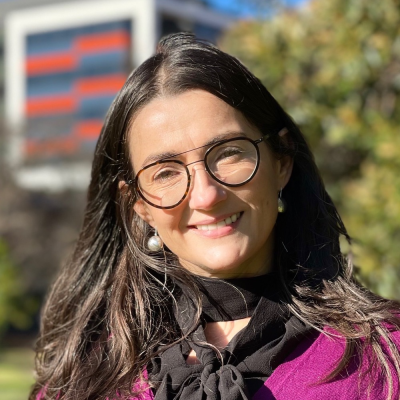
A/Prof Anneke Van Der Walt is the Director of Multiple Sclerosis and Neuroimmunology, as well as Head of MS Trials at Alfred Health.
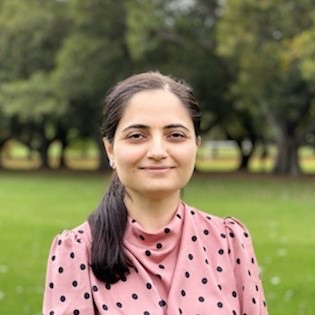
A/Prof Mastura Monif is the Head of Neuroimmunology and Neuroinflammation at Alfred Health.

Prof Geoffrey Cloud is the Director of Stroke at Alfred Health.
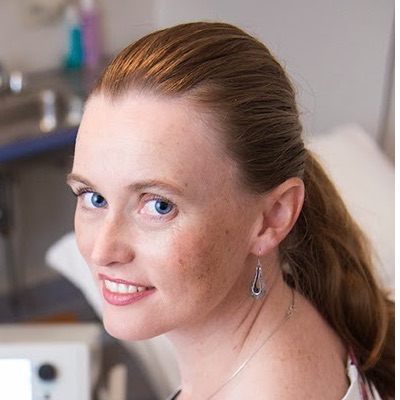
Dr Kelly Bertram is the Head of Movement Disorders at Alfred Health.


A/Prof David Darby in the Lead for Dementia Trials at Alfred Health.
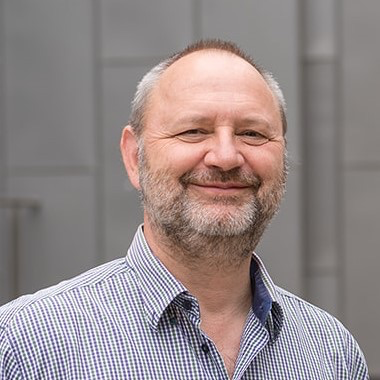
Prof Helmut Butzkueven is the Director of Neurology at Alfred Health.
Publications
Prestigiacomo CJ, Preul MC, Dagi TF, Neal CJ, Rosenfeld JV, Meister M
(2022), Neurosurg Focus, 53(3), E1
Nguyen, Jennifer; Zallmann, Michaela; Puy, Robert; Hutton, Elspeth; Stavrakoglou, Anastasios
(2022), AUSTRALAS J DERMATOL, 63(2), e170-e173
DOI: 10.1111/ajd.13816
Vajda, Frank JE; O’Brien, Terence J; Graham, Janet E; Hitchcock, Alison A; Perucca, Piero; Lander, Cecilie M; Eadie, Mervyn J
(2022), ACTA NEUROL SCAND, 145(6), 730-736
DOI: 10.1111/ane.13609



